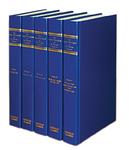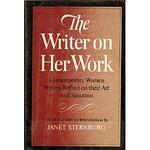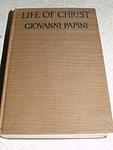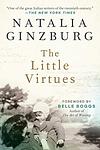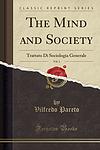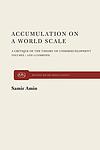The Greatest Italian, Unknown "Nonfiction" Books of All Time
Click to learn how this list is calculated.
This list represents a comprehensive and trusted collection of the greatest books. Developed through a specialized algorithm, it brings together 300 'best of' book lists to form a definitive guide to the world's most acclaimed books. For those interested in how these books are chosen, additional details can be found on the rankings page.
Genres
Countries
Date Range
Reading Statistics
Click the button below to see how many of these books you've read!
Download
If you're interested in downloading this list as a CSV file for use in a spreadsheet application, you can easily do so by clicking the button below. Please note that to ensure a manageable file size and faster download, the CSV will include details for only the first 500 books.
Download-
1. The Prince by Niccolo Machiavelli
This classic work of political philosophy provides a pragmatic guide on political leadership and power, arguing that leaders must do whatever necessary to maintain authority and protect their states, even if it means compromising morality and ethics. The book explores various types of principalities, military affairs, the conduct of great leaders, and the virtues a prince should possess. It is known for its controversial thesis, which suggests that the ends justify the means in politics.
-
2. If This Is a Man by Primo Levi
This book is a deeply moving and insightful memoir of a survivor of Auschwitz, a Nazi concentration camp during World War II. The author, an Italian Jew, provides a detailed account of his life in the camp, the brutal conditions, the dehumanization, and the struggle for survival. The narrative is a profound exploration of the human spirit, resilience, and the will to live, despite unimaginable horror and suffering. It also raises profound questions about humanity, morality, and the capacity for evil.
-
3. Night by Elie Wiesel
This book is a memoir of the author's experiences during the Holocaust, specifically in the Auschwitz and Buchenwald concentration camps. The narrative focuses on the relationship between a father and son under the most extreme circumstances, the loss of faith in God, humanity, and in each other, and the horrifying reality of the systematic genocide of six million Jews during World War II. The book is a poignant and stark examination of the depths of human evil and the enduring power of hope and survival.
-
4. Dialogue Concerning the Two Chief World Systems by Galileo
This scientific work presents a series of discussions between three characters, each representing a different perspective on the cosmological theories of the time. Throughout the dialogue, the characters debate the merits of the Ptolemaic geocentric system, which asserts that the Earth is the center of the universe, and the Copernican heliocentric system, which proposes that the Sun is the center. The author uses these discussions to subtly argue in favor of the Copernican system, challenging the traditional religious and scientific beliefs of his time.
-
5. History of My Life by Giacomo Casanova
"History of My Life" is an autobiography of an Italian adventurer and author, who is best remembered for his often complicated and elaborate affairs with women. The book offers a fascinating insight into his life, travels, and encounters. It provides an intimate look at the social customs and life of the 18th century, as well as the author's personal philosophies on a variety of subjects, including love, luck, and the importance of maintaining a sense of humor.
-
6. Mythology by Edith Hamilton
This book is a comprehensive guide to ancient Greek, Roman, and Norse mythologies, providing detailed accounts of various gods, goddesses, heroes, and other mythological creatures. It includes well-known stories like the Odyssey and the Iliad, along with lesser-known tales, and analyzes their significance in the cultures they originated from. The book also delves into the origins of these myths and their influence on later civilizations, offering readers a deep understanding of ancient cultures and their belief systems.
-
7. The Periodic Table by Primo Levi
"The Periodic Table" is a collection of short stories that use elements of the periodic table as metaphors to explore the author's experiences as a Jewish-Italian chemist before, during, and after World War II. Each chapter is named after a chemical element, reflecting its significant role in the story. The work provides deep insights into the human condition and the power of science, while also serving as a poignant memoir of survival during the Holocaust.
-
8. Lives of the Artists by Giorgio Vasari
"Lives of the Artists" is a comprehensive collection of biographies of the most significant Italian artists from the 13th to the 16th centuries. The book provides a detailed overview of the artists' lives, their works, and their contributions to the art world. It includes the biographies of renowned artists like Leonardo da Vinci, Michelangelo, and Raphael, among others. The author's personal acquaintance with some of these artists lends a unique perspective, making the book a valuable historical document.
-
9. Christ Stopped at Eboli: The Story of a Year by Carlo Levi
The book is a memoir about the author's year of exile in a remote region of southern Italy during the fascist regime. It depicts the harsh living conditions, poverty, and backwardness of the area, where the peasants' lives are ruled by superstition and tradition. Despite the difficulties, the author finds beauty and dignity in the people and their way of life, and he paints a vivid picture of their culture, beliefs, and struggles. The title refers to the locals' belief that they have been forgotten by modernity and even by God.
-
10. Summa Theologica by Thomas Aquinas
This comprehensive text is a seminal work in the field of theology, written by a prominent medieval philosopher and theologian. The book is structured in a question-and-answer format, tackling complex philosophical and theological issues such as the existence of God, the nature of man, the purpose of life, and the intricacies of morality and ethics. It is one of the most influential works in Western thought, particularly in Christian theology and philosophy, and continues to be a vital reference in these fields.
-
11. Danube by Claudio Magris
This literary work is a rich tapestry that combines travelogue, history, and cultural analysis, following the journey of the river Danube from its sources in the heart of Europe to its delta at the Black Sea. As the narrative meanders through various countries, it delves into the complex history and diversity of the regions along the riverbanks, reflecting on the interplay of different cultures, languages, and peoples. The book is a contemplative exploration of the European spirit, examining the river as both a physical and metaphorical conduit through which ideas and influences have flowed, shaping the continent's past and present.
-
12. The Drowned and the Saved by Primo Levi
This book is a deeply moving exploration of the Holocaust, written by a survivor. It delves into the horrifying experiences at Auschwitz, examining the psychological impact on the prisoners, the brutal behavior of the guards, and the complex moral dilemmas faced by both. The author also discusses the concept of memory and its unreliability, especially in the context of such traumatic events, and analyzes the ways in which the Holocaust has been represented and remembered in society. The book serves as a profound meditation on the human condition under extreme circumstances.
-
13. The Marriage Of Cadmus And Harmony by Roberto Calasso
"The Marriage of Cadmus and Harmony" is a unique exploration of Greek mythology. The narrative follows the journey of Cadmus, a Phoenician prince, and his marriage to Harmony, a goddess. The book delves deep into the complex and rich tapestry of Greek myths, presenting them as a continuous and ever-evolving story. It offers fascinating insights into the gods, heroes, and monsters of ancient Greece, while also drawing connections to modern life and thought.
-
14. Prison Notebooks by Antonio Gramsci
The book in question is a collection of intellectual and critical writings composed by an influential Marxist thinker while incarcerated by a Fascist regime. These notebooks delve into a wide array of subjects, including political theory, sociology, critical theory, and cultural analysis. Central to the work is the concept of cultural hegemony, which explores how state power and societal norms are maintained not just through force but also through cultural institutions and practices that shape public consciousness. The author's reflections on power, class, and ideology have had a profound impact on contemporary political and social thought, offering a nuanced understanding of the superstructures that govern societal dynamics and the potential for transformative change.
-
15. The Writer on Her Work by Janet Sternburg
"The Writer on Her Work" is a collection of essays by various female authors who discuss their experiences, challenges, and perspectives on writing. The book explores the complexities of being a woman in the literary world, shedding light on topics such as gender bias, the struggle for recognition, and the balance between personal life and professional aspirations. It provides a unique insight into the creative process, revealing how these women navigate their craft amidst societal expectations and personal obstacles.
-
16. Travels by Marco Polo
This book is a detailed account of a Venetian merchant's extensive travels throughout Asia during the 13th century. The narrative provides a comprehensive exploration of the diverse cultures, customs, landscapes, wildlife, and wealth of the Eastern world, including the Mongol Empire and China, where the author spent time in the court of Kublai Khan. His descriptions of the grandeur and sophistication of these civilizations challenged European assumptions about the East, and his tales of exotic wonders and adventures continue to captivate readers today.
-
17. Life of Christ by Giovanni Papini
"Life of Christ" is a comprehensive biography of Jesus Christ, exploring his life, teachings, and impact on humanity. The book delves into the historical, cultural, and spiritual context of his era, providing in-depth analysis of his miracles, parables, and relationships with his disciples and followers. The author also examines the significance of Christ's crucifixion and resurrection, aiming to provide a thorough understanding of his life and mission.
-
18. The Little Virtues by Natalia Ginzburg
"The Little Virtues" is a collection of essays that delve into the fabric of everyday life, exploring themes such as the intricacies of family relationships, the importance of personal growth and integrity, and the role of education and parenting. The author reflects on her own experiences, including her upbringing in Italy, the impact of World War II on her life, and her observations on the cultural and societal norms of her time. With a blend of personal anecdote and philosophical insight, the essays advocate for the pursuit of larger virtues—such as generosity, honesty, and courage—over the 'little virtues' like frugality and caution, suggesting that a life well-lived is one that embraces the full spectrum of human potential and kindness.
-
19. All But My Life by Gerda Weissmann Klein
"All But My Life" is a poignant memoir of a young woman's six-year ordeal as a victim of Nazi cruelty. The narrative follows her life from a peaceful, upper-middle-class childhood in Bielitz, Poland, through her horrifying experiences and loss during the Holocaust, to her miraculous survival and marriage to an American soldier. It is a story of courage, resilience, and the enduring power of hope.
-
20. Autobiography by Benvenuto Cellini
The book is a vivid personal account of a 16th-century Italian artist and goldsmith, providing a detailed portrayal of Renaissance life. The author narrates his tumultuous career, which spanned artistic triumphs, patronage under powerful figures, and frequent legal and violent skirmishes. His narrative is filled with tales of his work on important commissions, his encounters with notable contemporaries, and his passionate dedication to art. The autobiography stands out for its lively storytelling, the author's brash personality, and insights into the social and cultural dynamics of the time, making it a valuable historical document as well as an engaging personal story.
-
21. Power Politics by Martin Wright
"Power Politics" is a comprehensive analysis of the dynamics of power in international relations. The book delves into the ways in which states interact with one another, the influence of power on these interactions, and the role of both military and economic strength in determining political outcomes. It examines the balance of power theory, the impact of alliances, and the strategies nations employ to enhance their influence on the global stage. The author also explores the implications of power politics for world peace and the potential for cooperation among nations in an environment often characterized by competition and conflict.
-
22. The Mind and Society by Vilfredo Pareto
This book is a comprehensive analysis of the social and psychological processes that shape human behavior and society. The author introduces the concept of "residues" and "derivations" as the main drivers of human actions and societal change. He argues that residues, innate characteristics within individuals, are more stable and influential in shaping social phenomena, while derivations are the justifications or explanations people give for their actions. The book further delves into the classification of residues and the role they play in economics, politics, and social dynamics.
-
23. E=Mc2 by David Bodanis
The book provides a layperson-friendly explanation of the world's most famous equation, delving into the history, science, and people behind its development. It explores the biographies of the scientists who contributed to our understanding of energy and mass, including the equation's originator, and the practical and philosophical implications of the equation's assertion that energy and mass are interchangeable. The narrative also discusses the equation's role in the development of atomic energy and its impact on modern physics, offering an accessible journey through the annals of scientific thought and the revolutionizing discoveries that shape our understanding of the universe.
-
24. Accumulation On A World Scale by Samir Amin
"Accumulation On A World Scale" by Samir Amin is a thought-provoking analysis of the global capitalist system and the dynamics of accumulation. Amin explores the historical development of capitalism, its inherent contradictions, and the ways in which it perpetuates inequality and exploitation on a global scale. He argues that the capitalist system is fundamentally flawed and unsustainable, offering alternative perspectives on economic development and proposing radical changes to create a more equitable and just world.
-
25. The Montessori Method by Maria Montessori
The book provides an in-depth exploration of the educational method developed by the author for teaching children. It emphasizes the importance of self-directed activity, hands-on learning, and collaborative play in child development. The book also discusses the author's philosophy of observing children in a "prepared environment" where they have access to materials and experiences to aid their learning. The method encourages children to make creative choices in their learning, while the teacher guides the process. The book also delves into the author's belief in the critical importance of the early years of a child's life in shaping their future development.
Reading Statistics
Click the button below to see how many of these books you've read!
Download
If you're interested in downloading this list as a CSV file for use in a spreadsheet application, you can easily do so by clicking the button below. Please note that to ensure a manageable file size and faster download, the CSV will include details for only the first 500 books.
Download








